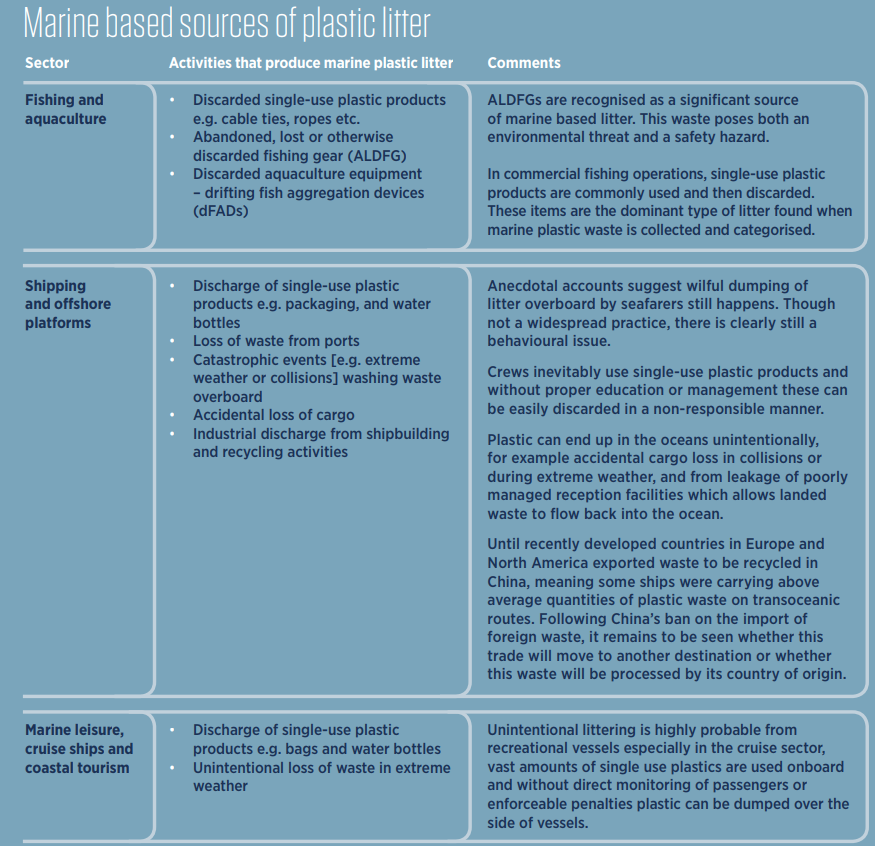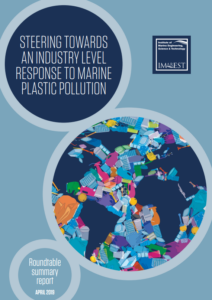The Institute of Marine Engineering, Science & Technology (IMarEST) collaborated with the Centre for Environment, Fisheries and Aquaculture Science (Cefas) to provide a wider industry perspective concerning the challenges, management practices and attitudes regarding marine plastics in the shipping industry.
The report ‘Steering towards an industry-level response to marine plastic pollution’ states that marine and shipping activities are a source of marine plastic litter.
According to estimations, approximately 5.2 trillion pieces of plastics are circulating in the oceans. Consequently, plastic is responsible for the deaths of over 1 million seabirds and 100,000 marine mammals yearly, amongst a tidal wave of other environmental issues.
Therefore, the report seeks to investigate how the marine industry could reduce its environmental footprint when it comes to ocean plastics.
Once plastic enters the water, redistribution and accumulation is exacerbated by the currents and oceanic circulation – a fact attested by the unexpected discovery of identifiable plastic waste in the remotest depths of the Antarctic Ocean.

According to the above:
Fishing and aquaculture:
- Discarded single-use plastic products e.g. cable ties, ropes etc;
- Abandoned, lost or otherwise discarded fishing gear (ALDFG);
- Discarded aquaculture equipment – drifting fish aggregation devices (dFADs).
Shipping and offshore platforms:
- Discharge of single-use plastic products e.g. packaging, and water bottles;
- Loss of waste from ports;
- Catastrophic events [e.g. extreme weather or collisions] washing waste overboard;
- Accidental loss of cargo;
- Industrial discharge from shipbuilding and recycling activities.
Marine leisure, cruise ships and coastal tourism:
- Discharge of single-use plastic products e.g. bags and water bottles;
- Unintentional loss of waste in extreme weather.
In light of the pollution of the marine environment, the report presents alternatives of plastic.
- Biodegradable plastics;
- Bioplastics;
- Recycled plastics.
In addition, the Marine Environmental Protection Committee (MEPC) of the IMO is responsible for highlighting environmental issues and considers the prevention of ship-source pollution covered by the International Convention for the Prevention of Pollution from Ships, 1973 as modified by the Protocol of 1978, commonly referred to as MARPOL.
Through the years, the environmental protection has been boosted by various amendments, such as the inclusion of requirements for port State control that allow inspections when ships come into ports of other contracting countries ensuring measures for pollution prevention are carried out.
The port reception facilities can result in an overwhelming amount of plastic onboard including single-use materials being used by the crew and passengers, vast amounts of wrapping for cargo and additional packaging used for protection. This is especially true when considering long voyages where onboard storage capacity is limited and shipping routes do not encounter recycling port reception facilities.
Concluding, the majority of plastic that finds its way into the oceans originates from land-based sources. Yet, the contribution from ocean-based activities, such as commercial fishing, cargo shipping and passenger cruises, is not insignificant.
The report highlights that although the existing regulations as MARPOL and the London Convention protect the environment, they are rounded by several limitations; Thus, a review should be conducted concerning their practical implementation aiming to identify and acknowledge opportunities for updating and improving.
For more information, you may click on the PDF herebelow





























































